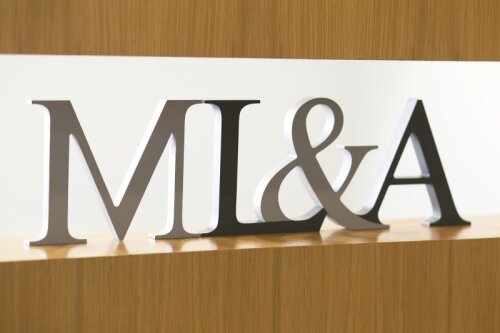Best Mortgage Lawyers in Funchal
Share your needs with us, get contacted by law firms.
Free. Takes 2 min.
Free Guide to Hiring a Real Estate Lawyer
List of the best lawyers in Funchal, Portugal
About Mortgage Law in Funchal, Portugal
Mortgage law in Funchal, Portugal refers to the legal framework governing real estate loans and the rights and responsibilities of borrowers and lenders when property is used as collateral. A mortgage (hipoteca in Portuguese) is a security interest registered on real property, commonly entered into when individuals or businesses purchase, build, or refinance homes or commercial premises. Funchal, as the capital of Madeira, follows the nationwide Portuguese legal system, but practical aspects often reflect local real estate trends. The process involves clear legal procedures to secure loan repayments, protect both lender and borrower, and ensure property rights are upheld under Portuguese civil law.
Why You May Need a Lawyer
Securing a mortgage in Funchal is a significant financial commitment that involves complex legal documentation, due diligence, and negotiation. You may need a lawyer in situations such as:
- Reviewing and negotiating mortgage contract terms to avoid unfavorable clauses or hidden costs
- Conducting a title search to ascertain that the property is free from other encumbrances or legal disputes
- Navigating issues related to non-resident buying, taxation, and residency requirements
- Resolving disputes about mortgage repayments, default, or property foreclosure
- Transferring a mortgage during inheritance, divorce, or sale of the property
- Understanding your rights and obligations under local and national laws
- Ensuring compliance with banking regulations and property registration in Madeira's land registry
- Dealing with banks, especially if there are language barriers or unfamiliarity with local processes
Local Laws Overview
The Portuguese Civil Code forms the core of mortgage law in Funchal. Here are essential aspects:
- Mortgages must be formalized through a written contract and registered with the Land Registry (Conservatória do Registo Predial) for legal validity
- The mortgage secures repayment of the principal loan amount plus interest and associated charges
- Foreclosure procedures and lender rights in case of default strictly follow judicial processes, ensuring borrower protection
- Non-residents can obtain mortgages, but requirements and banking procedures may differ from those for residents
- Mortgage rates and conditions may be variable or fixed, with different implications for long-term financial planning
- There are mandatory disclosures regarding fees, terms, and conditions, enforced by the Bank of Portugal
- Special rules apply for property inheritance, marital property, and payment of local taxes like IMT (property transfer tax) and IMI (municipal property tax)
- Portuguese law requires independent notarial oversight for property transfers, adding a layer of legal assurance
Frequently Asked Questions
What is a mortgage in Funchal, Portugal?
A mortgage is a legal agreement where a property is used as collateral to secure a loan, typically for buying or renovating real estate in Funchal. If the borrower fails to meet payment obligations, the lender may initiate foreclosure to recover the loan amount.
Can foreigners get a mortgage in Funchal?
Yes, non-residents and foreigners can obtain mortgages in Funchal. Lenders will assess your income, creditworthiness, and legal eligibility. Some banks may require a higher down payment from non-residents.
What documents are needed to apply for a mortgage?
Applicants usually need identification, proof of income, tax number (NIF), property documents, and bank statements. Non-residents may need additional paperwork verifying overseas income and residency.
How much can I borrow?
The amount depends on your income, existing debts, and the value of the property. Typically, banks lend up to 70-80 percent of the property's value for residents, and often less for non-residents.
How is a mortgage registered in Funchal?
After signing the mortgage contract before a notary, the agreement is registered with the local Land Registry office. This secures the lender's rights and ensures public notice of the encumbrance.
What taxes and fees are involved?
You will encounter notary fees, stamp duty, IMT (property transfer tax), registration costs, and possibly bank administration fees. Your lawyer can clarify the exact amounts and timing.
What happens if I default on my mortgage?
The lender can initiate judicial foreclosure, which may lead to the forced sale of the property. However, the process is strictly regulated, offering borrowers some protection and opportunities to resolve defaults.
Can I transfer my mortgage to another property?
It may be possible to transfer, but this depends on your lender’s policies and your contract terms. Legal advice is recommended to assess costs and eligibility.
Are mortgage contracts negotiable?
Yes, while standard terms exist, many details such as interest rates, repayment periods, and penalties can be negotiated, especially with legal representation.
Should I get pre-approval before searching for a property?
It is advisable to seek pre-approval from a bank to clarify your budget, expedite the buying process, and strengthen your position in price negotiations.
Additional Resources
For informed decision-making and further support, consider the following resources:
- Conservatória do Registo Predial: The local land registry office for property and mortgage registration
- Bank of Portugal (Banco de Portugal): Regulates banking and provides consumer guides on mortgage loans
- Ordem dos Advogados: Portuguese Bar Association for finding licensed local lawyers
- Funchal City Council (Câmara Municipal do Funchal): For municipal taxes and property information
- Notaries: Independent legal professionals required for property transactions in Portugal
- Local real estate agencies with experience assisting international buyers
Next Steps
If you are considering a mortgage in Funchal, first educate yourself on the legal and financial framework as outlined above. Before signing any agreement, consult with a local lawyer who specializes in property law. Collect all necessary documents, clarify your financial eligibility with a bank, and secure pre-approval if possible. Your lawyer will review contracts, guide you through negotiations, and ensure compliance with local requirements. Always use a reputable notary for mortgage registration and property transfer. Taking these structured steps will help protect your interests and facilitate a smooth transaction when securing a mortgage in Funchal, Portugal.
Lawzana helps you find the best lawyers and law firms in Funchal through a curated and pre-screened list of qualified legal professionals. Our platform offers rankings and detailed profiles of attorneys and law firms, allowing you to compare based on practice areas, including Mortgage, experience, and client feedback.
Each profile includes a description of the firm's areas of practice, client reviews, team members and partners, year of establishment, spoken languages, office locations, contact information, social media presence, and any published articles or resources. Most firms on our platform speak English and are experienced in both local and international legal matters.
Get a quote from top-rated law firms in Funchal, Portugal — quickly, securely, and without unnecessary hassle.
Disclaimer:
The information provided on this page is for general informational purposes only and does not constitute legal advice. While we strive to ensure the accuracy and relevance of the content, legal information may change over time, and interpretations of the law can vary. You should always consult with a qualified legal professional for advice specific to your situation.
We disclaim all liability for actions taken or not taken based on the content of this page. If you believe any information is incorrect or outdated, please contact us, and we will review and update it where appropriate.









